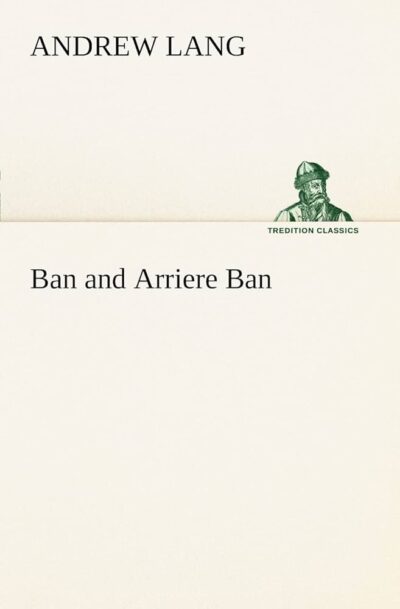208 Results in the "Poetry" category
Biography & Memoir (513)
Books Like (9)
Business & Finance (3)
Children’s Fiction (235)
Dystopian (30)
Education & Learning (26)
Fantasy (1832)
fashion (1)
Fiction (5781)
Health & Wellness (21)
Historical Fiction (662)
Horror (162)
Literary Fiction (1011)
Non-Fiction (1213)
Novel (240)
Others (106)
Philosophy (147)
Politics & History (126)
Posts (121)
Psychology (50)
Religion & Spirituality (1)
Romance Novel (771)
Science & Technology (65)
Science Fiction (409)
Self-Help & Personal Development (112)
The Ultimate Book Lists (1)
Thriller / Mystery (912)
Travel & Adventure (2)
True Crime (57)
view (96)
Young Adult (751)
-
Story
Ban and Arriere Ban
 Ban and Arrière-Ban by George Meredith is a historical novel set in the medieval period, blending romance, adventure, and intrigue as it follows the lives of knights and noble families. The story explores themes of loyalty, honor, and personal conflict, focusing on the complex relationships between its characters as they navigate societal expectations and the challenges of chivalric duty. The novel's title refers to the medieval French legal terms for summoning all able-bodied men to arms, reflecting the novel's focus on military and familial obligations.
Ban and Arrière-Ban by George Meredith is a historical novel set in the medieval period, blending romance, adventure, and intrigue as it follows the lives of knights and noble families. The story explores themes of loyalty, honor, and personal conflict, focusing on the complex relationships between its characters as they navigate societal expectations and the challenges of chivalric duty. The novel's title refers to the medieval French legal terms for summoning all able-bodied men to arms, reflecting the novel's focus on military and familial obligations.-
4.1 K • Nov 8, '24
-
4.9 K • Nov 8, '24
-
4.0 K • Nov 8, '24
-
-
 Legends and Lyrics: Second Series is a collection of poems by Adelaide Anne Procter, published in 1861. It features reflective and lyrical works exploring themes of faith, love, compassion, and social justice, showcasing Procter's delicate and heartfelt poetic style.
Legends and Lyrics: Second Series is a collection of poems by Adelaide Anne Procter, published in 1861. It features reflective and lyrical works exploring themes of faith, love, compassion, and social justice, showcasing Procter's delicate and heartfelt poetic style.-
4.0 K • Nov 8, '24
-
4.1 K • Nov 8, '24
-
4.4 K • Nov 8, '24
-
-
Story
The Tale of Balen
 The Tale of Balen by Algernon Charles Swinburne is a poetic retelling of the tragic Arthurian legend of Sir Balin, a knight whose life is marked by loyalty, courage, and a fateful destiny. First published in 1896, the poem follows Sir Balin’s quest for honor and his encounters with themes of fate, vengeance, and the consequences of his actions. Swinburne's vivid, lyrical verse captures the medieval atmosphere of King Arthur's court while delving into the hero’s inner conflict and moral struggles. This work highlights Swinburne’s fascination with chivalric ideals and the tragic beauty of knightly legends, bringing to life one of the darker tales from Arthurian mythology.
The Tale of Balen by Algernon Charles Swinburne is a poetic retelling of the tragic Arthurian legend of Sir Balin, a knight whose life is marked by loyalty, courage, and a fateful destiny. First published in 1896, the poem follows Sir Balin’s quest for honor and his encounters with themes of fate, vengeance, and the consequences of his actions. Swinburne's vivid, lyrical verse captures the medieval atmosphere of King Arthur's court while delving into the hero’s inner conflict and moral struggles. This work highlights Swinburne’s fascination with chivalric ideals and the tragic beauty of knightly legends, bringing to life one of the darker tales from Arthurian mythology.-
4.5 K • Nov 8, '24
-
4.6 K • Nov 8, '24
-
4.5 K • Nov 8, '24
-
-
Story
Men, Women, and Ghosts
 Men, Women, and Ghosts by Elizabeth Stuart Phelps is a collection of short stories blending realism with supernatural elements, exploring the lives, emotions, and inner struggles of its characters. Published in 1869, the book delves into themes of love, loss, war, and the human psyche, often with a focus on the impact of the Civil War on individuals and families. Phelps' stories are known for their psychological depth and moral complexity, as well as their daring exploration of women's roles and inner lives. With a mix of ghostly encounters and poignant human experiences, *Men, Women, and Ghosts* is celebrated for its sensitive, sometimes haunting portrayal of the spiritual and emotional dimensions of everyday life.
Men, Women, and Ghosts by Elizabeth Stuart Phelps is a collection of short stories blending realism with supernatural elements, exploring the lives, emotions, and inner struggles of its characters. Published in 1869, the book delves into themes of love, loss, war, and the human psyche, often with a focus on the impact of the Civil War on individuals and families. Phelps' stories are known for their psychological depth and moral complexity, as well as their daring exploration of women's roles and inner lives. With a mix of ghostly encounters and poignant human experiences, *Men, Women, and Ghosts* is celebrated for its sensitive, sometimes haunting portrayal of the spiritual and emotional dimensions of everyday life.-
4.9 K • Nov 8, '24
-
4.6 K • Nov 8, '24
-
5.6 K • Nov 8, '24
-
- Previous 1 2
